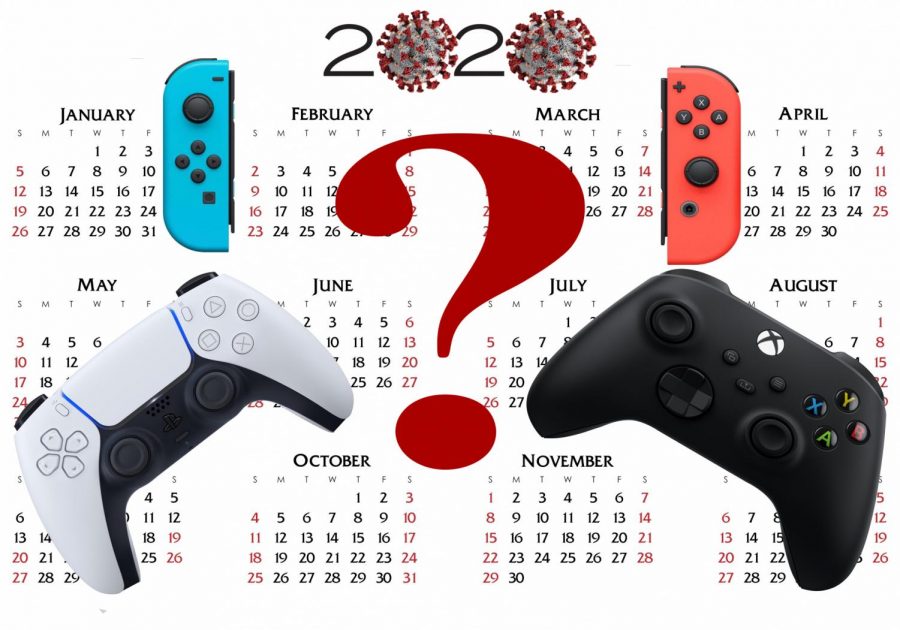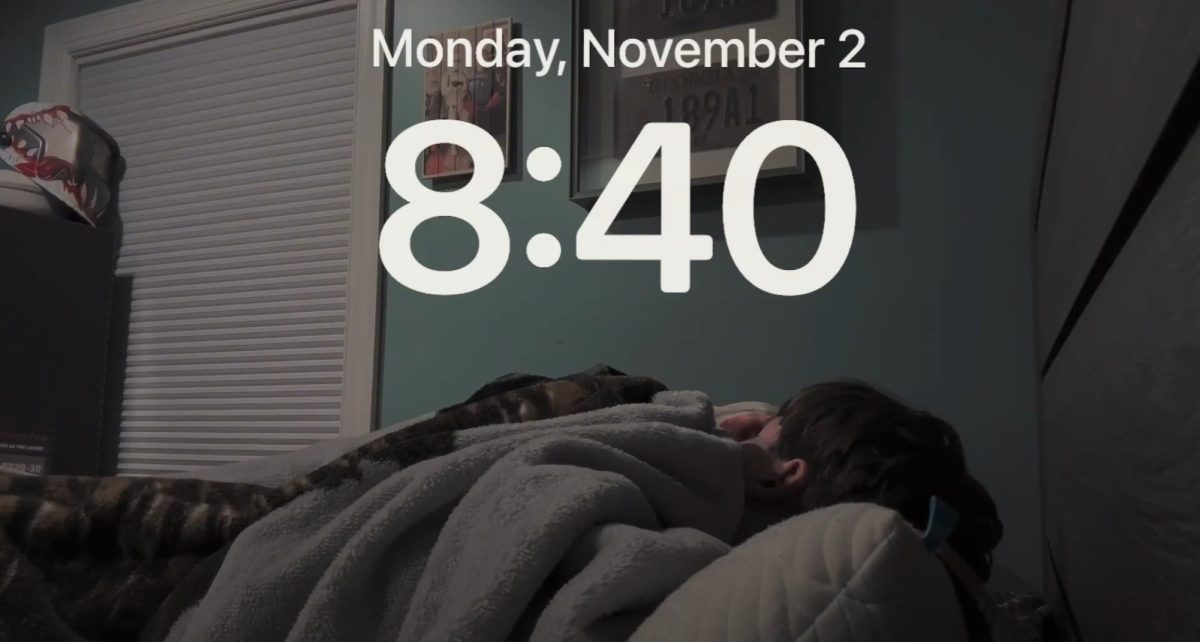The video game industry is yet another enterprise that has been affected by the COVID-19 outbreak. The pandemic has inadvertently brought the multi-billion dollar business new success and new challenges for the months, if not years to come.
Usage & Sales
As the amount of people practicing mandated self-isolation continues to skyrocket worldwide, some have turned to video games as a means of escapism.
In the first week of quarantine, video games saw a 75% surge in popularity, as reported by Verizon.
This increase correlates with the findings of The NPD Group, who reported that United States consumers spent a record-breaking $10.86 billion on video game products in the first quarter of 2020, an increase of 9% compared to the first quarter of 2019.
The best-performing titles of the quarter, such as “Animal Crossing: New Horizons,” “Call of Duty: Modern Warfare,” “Doom Eternal” and “Grand Theft Auto V,” among others, were particularly beneficial in breaking the previous record of $9.58 billion.
Other titles including the “Fifa” series and “Overwatch” have also seen a steady increase in players since the start of the pandemic, with their parent companies Electronic Arts (EA) and Activision Blizzard, respectively, both seeing a boost in sales for the first quarter of 2020.
“In the face of so many difficulties, our employees have made certain that the joy, the engagement, and the benefits of gaming remain an effective way to help keep our 400 million players around the world connected and safe,” said Activision Blizzard Chief Executive Bobby Kotick in an earnings release.
The sales of current-generation consoles such as the Nintendo Switch, Xbox One, and PlayStation 4 (PS4) have also seen a steady rise of 63% to $461 million in the first quarter of 2020 compared to last year’s first quarter.
Production Shortages
With the onset of these unexpected sales increases, the industry has also been taken aback in several respects.
This spike in sales has correlated with an exponential increase of people playing games online, resulting in the slowing of download speeds for video games by internet infrastructure providers.
Content delivery network, Akamai, announced back in March that they are working with Sony, Microsoft and other publishers to deliberately throttle their download speeds to provide internet access for everyone.
News of this collaboration first grew to light after Sony slowed down download speeds in Europe and the U.S. in response to the rise in online activity. The corporation states that despite these measures, it is sustaining a standard level of performance on their devices.
A more pressing issue for the industry has been production shortages, which have become rampant in recent months.
Although Sony has reported modest shortfalls, concerning the shutdown of factories in China, Malaysia and the UK, the most prominent and widespread shortages have been regarding the Nintendo Switch.
Nintendo CEO Shuntaro Furukawa first announced the scarcity of the product in a news briefing from late January, stating how Chinese production was “seeing some impact from the coronavirus.”
The full impact of the virus on production efforts was not clear until mid-February when publications such as Bloomberg reported on how a limited supply of console components from China was disturbing the output of Switches from a factory based out of Vietnam.
At this point, devices were already difficult to obtain in Japan, prompting analysts to determine similar measures would likely take place in the U.S. by April.
Due to the console’s handheld nature and accessibility to play with others online, these measures not only ended up taking place in the U.S. but on a worldwide scale, making it incredibly difficult to find one of the devices for MSRP.
Motivating this difficulty has been the usage of checkout bots, programmed to buy every model of the popular console from stores when they restock with the means of gauging their price and reselling them online for a profit.
For example, at the time of writing, the standard model with Neon Blue and Red Joy-Con started at $572.35 with tax included — nearly double the MSRP of $300 — for a used, like-new device on Amazon, with a factory sealed edition costing over $30 more.
The Animal Crossing: New Horizons edition of the console has seen the highest surge in pricing, with a like-new model starting at over $850.
A representative from Nintendo acknowledged the shortages and insisted more consoles were on their way, in a statement to gamesindustry.biz from early April.
Furukawa presumes the impact on production, incited by the mandated lockdowns in countries that produce essential components for the console such as Malaysia and the Philippines, will radically reduce by the summer.
While restarting production will temporarily help Switches get back in stock, shortages may reappear near the end of the year as the corporation will not have made enough to meet demand during the holiday season.
Strains on Production
The COVID-19 outbreak has also produced difficulties for those within the industry trying to work on future titles.
In light of the pandemic, larger studios, such as Bungie, Riot and Rockstar, have shifted their business model for employees to work remotely. Smaller, independent studios have done the same or decided to close their doors entirely.
Regardless of their size, developers that are continuing to work through these times have hit roadblocks along the way, impeding progress and maximum productivity.
Larian Studios, an independent Belgian video game developer, is an example of how the pandemic has affected the production of games.
The first week of quarantine went well for the developer, which is currently producing the much-anticipated role-playing game “Baldur’s Gate 3,” with its 300 employees preserving high morale.
Although, as the self-isolation measures continued, productivity and communication within the company have deteriorated with many employees having to balance work and their personal lives by working limited or unusual hours.
Some developers, such as Rival Games, have shuttered their doors in response to the outbreak.
The Finnish studio, known for its iOS game “Alien: Blackout,” announced its closure on April 10. CEO Jukka Laakso said the studio had already been struggling, but the pandemic “shut down all the leads that we had and left us lost in the dark with no way out.”
As game development can tend to be a remarkable undertaking to pursue, the process can vary worldwide, especially regarding collaborative efforts and societal values.
Masahiro Sakurai, the creator of the Super Smash Bros. series, discussed how the pandemic is impacting the development of new games in Japan during an interview with Kotaku.
“This is a highly confidential job, and because it’s not like people can take it home and bring development materials with them, honestly, work cannot progress,” he said.
Game Workers Unite, a grass-roots organization that aims to unionize the gaming industry, is advocating for the proper aid to be given to developers and creators like these alongside other industry workers to continue remotely producing and releasing games.
According to a statement from the group, this aid comprises a plethora of demands, including “flexible working hours, universal health service for all, a fair sick pay, rent freezes and a more sustainable way of making games and games’ hardware.”
Game Delays
Several developers and publishers have formally announced how they have delayed at least one of their titles in response to the pandemic.
inExile Entertainment, a developer that was acquired by Xbox Game Studios in 2018, pushed back “Wasteland 3,” it’s latest turn based role-playing game, from May to Aug. 28, 2020.
Brian Fargo, head of the studio, noted logistical challenges with remote work for the three-month delay.
Square Enix, the developer and publisher of role-playing game franchises, postponed the release of “Kingdom Hearts: Dark Road,” a mobile spin-off of the series, from this spring to a to be determined date.
The corporation also stated how the virus has been disrupting the development of “Final Fantasy XIV: A Realm Reborn,” the second massively-multiplayer online title in the series, forcing the latest patch to release up to a month after it was due to be available in mid-June.
Sony delayed the release of two of its first-party titles, Naughty Dog’s “The Last of Us Part 2” and Sucker Punch’s “Ghost of Tsushima,” after production difficulties arose from the pandemic.
Both are now releasing roughly a month later than projected, with the former releasing on June 19 and the latter releasing on July 17.
After being delayed in February, PlayStation VR exclusive “Iron Man VR,” developed by Seattle-based studio Camouflaj, has been pushed back once again from May 15 to July 3.
Nintendo CEO Shuntaro Furukawa alluded to the possible delay of various first-party releases planned for the current fiscal year during an investors call on May 15.
“Since there are indeed big limitations on what can be done from home, we do think this will have a large impact,” Furukawa said.
Next-Generation Delays
As for the next generation of consoles, analysts have differing opinions regarding whether or not Microsoft and Sony will delay their consoles, the Xbox Series X and PlayStation 5 (PS5), respectively, due to the outbreak.
Phil Spencer, head of Xbox, said that despite the outbreak, the former is still on track to release this holiday season on CNBC’s “Squawk Alley” in late-April.
One week later, Spencer revealed to Business Insider how the impacts of COVID-19 on the industry would start being noticeable by the first quarter of 2021, with significant factors of game production virtually ceasing to exist in the current world climate.
A report from Bloomberg in mid-April divulged some details regarding the latter’s release, notably stating how the console will likely launch in the fourth quarter of 2020 with limited stock and a hefty price tag of around $450 to $500.
Contact the writers: [email protected] & [email protected]
Twitter: @MKelleyWW & @RAndrusTWW











